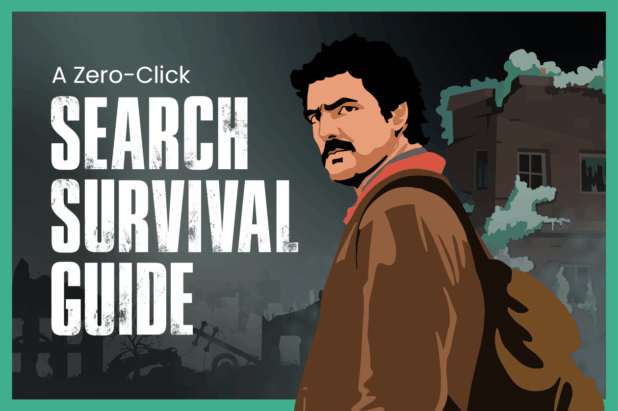
Today, everyone is a digital marketing expert online. Or so it seems.
The ease of publishing content on blogs, social media and even mainstream business publications has created a wave of marketing experts, each proclaiming their superhero-ness. As companies need expertise to make sense of planning and implementation of modern digital marketing programs, how can you tell which consultants are actually credible and trustworthy?
Whether you’re a new CMO, VP or Director of marketing at a company looking for consultants for help with strategy or vendors to help with implementation and software, it can be a real challenge finding the right partner – especially if pre-existing relationships don’t already exist.
The discussions I have with marketers at mid-market and enterprise brands every week reveal the uncertainty felt in finding digital marketing resources that can live up to the hype. I also see what happens when a visionary and empowered marketing consultancy connects with capable client side marketers – amazing things can happen. So how do you find the right digital marketing resources? (consultants, agencies, software, contractors, employees) Here are a few signals of credibility to consider:
1. Agency Brand Content – Blogs can be very effective at communicating an agency’s point of view and corporate personality. Company web sites tend to be dry and careful or conversely, full of hype. A well written and promoted blog as well as other content produced by the agency can do amazing things for an agency’s reputation in an industry. TopRank’s Online Marketing Blog, the book Optimize and the conference eBooks we create with industry influencers are great examples.
2. Social Networks – The boom of social network usage by members of the digital marketing community gives abundant opportunity to see another side of an online marketing agency. Twitter, Facebook and LinkedIn get most of the attention but there are niche networks and groups that may be smaller in numbers of members, but very rich in influence with buyers. Publishing, curating and collaborating on unique knowledge through social media formats and networks can give important indications of an agency’s expertise in formats that can match the information consumption preferences of a variety of potential clients.
3. Agency Thought Leaders – The ability for motivated staff to share their perspectives easily through numerous publishing channels online creates attention to talent that in the past, would have been squandered. Rather than seeing staff that self promote as potential liabilities, agencies that embrace and encourage smart expression of expertise can gain a significant advantage. Empowered employees that work with strong leadership within the agency can be a powerful force – but only when inspired.
4. Events and Public Speaking – Baring it all in front of an audience so to speak, can go both ways. If the speaker knows their subject matter and can entertain as well, speaking at conferences, regional events, on webinars and at Universities can be very productive. However, if the speaker does not present well or “know their stuff” things can go badly. Presenting “too much” secret sauce to impress potential customers can also fuel the competition, so there is a fine line between being a standout and being an competitive liability.
5. Client Testimonials and Advocacy – Client success stories are often one of the first things that catches the eye when looking at different marketing consultants. Common mistakes include testimonials that are too enthusiastic or those that are benign but packed as if they’re something special. Most importantly, testimonials should reflect issues of interest to the target audience. Even more powerful is unsolicited client advocacy. When marketers ask their peers for a top digital marketing agency, who is their first choice? A personal recommendation in that scenario is very powerful.
6. Case Studies – With more complex situations, companies want to drill down into specifics of how a company does what it does. The changing nature of the digital marketing industry means a continuous set of problem/solution exercises. Case studies present a picture of a company’s breadth and depth of ability to solve a variety of issues.
7. Industry Awards – Getting recognized by a respected third party can mean a quick trip to the credibility club. However, such awards are only as meaningful as the credibility of the entities giving them out. There are an increasing number of awards in the digital marketing space and if an agency’s accolades are made up entirely of awards and nothing else, you’ll probably find them looking in a mirror before you see them in front of a computer.
8. Being Quoted by Industry Media and Blogs – Being cited as an authority on a particular topic in a high profile publication can transform an agency’s reputation and credibility overnight. Getting profiled with a photo on the cover of a regional print publication had amazing effects for TopRank but not nearly as much as getting mentioned in a very favorable light in the print and online versions of The Economist, Forbes and Entrepreneur or on top industry sites like Content Marketing Institute, Social Media Examiner and MarketingProfs.
9. Web Site’s Design & Functionality – A web site still says a lot about a company. A properly designed and informative web site can foster a sense of authority and credibility. Increasingly, agencies are adding social features to their websites such as blogs or syndicating external feeds from social channels and curating that content for readers.
10. Editorial Contributions to Industry Publications – Contributing articles to prominent online or print publications gives companies an opportunity to show their unique problem solving abilities and expertise. By association with the publication, the agency also gets a boost in the credibility department.
11. Advertising – One way of supporting being “the best answer” is to advertise in all the places your target audience looks for credible information. Creative advertising on and offline over a period of time can do wonders when implemented with a strong editorial and social media marketing program. This takes a smart and analytical approach, a crack creative team and a healthy budget.
12. Conference Sponsorships – Primary sponsorships of the Platinum, Gold and Silver sort at prominent industry conferences can put companies front and center of the most desirable audience: Companies looking for more information on the industry and vendor sourcing. This also takes a healthy budget and as such, gives the impression that the sponsoring agencies are also very healthy. Media sponsorships are another avenue for promotion with most going to prominent print publications and some online pubs. Rarely if ever, is an agency allowed to be a media sponsor unless their blog or newsletter is highly visible and relevant.
13. Frontline Staff & Agency UX – Answering the phone, speaking to prospects in meetings, networking online and offline, front line staff behavior can have leave a big impression (good or bad) on potential clients. Account Management and Client Services staff that work with existing customers also have a big impact on word of mouth between clients and the other companies they might refer the agency’s services to.
14. Client List – You are who you associate with. Big brand clients brings a whole other set of challenges and opportunities. But seeing those big names often gives lesser known brand prospects a certain kind of warm fuzzy feeling, “If this agency made it through the vendor sourcing process with a Fortune 50 company, then they’re probably of the right caliber for my $500m company.”
15. Search Engine Visibility on Competitive Industry Terms – I can’t tell you how many times companies have said, “We found you on Google by searching for (insert industry term here) and we figured if you can do it for yourself, you can probably do it for us.” I know, I know. There’s so much wrong with that kind of ranking logic these days, but it’s a fact of life in the search biz. Search engine visibility is a form of public relations and showing up for relevant, broad terms (as well as your niche specialties) makes your brand name (if your Title tags are written properly) associated with those terms.
16. Brand – Message, Identity, Logo – There’s a lot that goes into creating a brand. I like the definition: “A brand is a promise kept”. Each interaction between a prospective company and something that communicates information about the agency is an opportunity to make a brand promise. Repeat interactions provide the opportunity to keep that promise. Thoughtful messaging and a well designed logo also convey important messages that evoke feelings which can either build or detract from credibility.
17. Industry Associations – Active participation in a marketing industry association shows an investment on the part of both individuals and the agency in furthering the cause of digital marketing. Whether it’s a local interactive marketing association, DMA, AMA, IABC, BMA, Search Marketing chapter or at the national level, involvement with the association can create network contacts, access to education and resources to the benefit of the agency and clients alike.
18. Published Research – In the same way that faculty at Universities gain prominence and reputation by publishing research in professional journals, companies that have the insight and resources to conduct real research and publish their findings create very strong signals of credibility. It is not only the execution of such research that makes it an effective “signal” though. The intelligent promotion of these learnings is as much or more important.
19. The Agency’s Offices – While many digital marketing consultants and agencies operate virtually, most maintain physical offices. Depending on the manner in which the agency pitches potential clients, those offices can give an impression of the agency’s style, personality and health.
20. Industry and Influencer Advocacy – First and foremost, doing good work is the cornerstone of building positive word of mouth. At the same time, successfully engaging the tactics on this list will build positive buzz, but the longevity of that buzz is only sustainable if the agency has something significant in it’s ability to deliver results, to back it up. There is such a thing as over-marketing and people are smart enough to realize that one company can’t do everything. Making it easy for clients to pass on the good news or making sure testimonials are properly promoted can extend a company’s reach with nominal marketing investment.
21. Being Included on Industry “Lists” of Top Agencies – No matter how you slice and dice it, getting included on a list sends a signal. Lists are inherently controversial because getting included means others are excluded. If you know how to create and promote the right signals, like doing great work for clients and letting the world know about it, getting on the kinds of lists that build credibility is pretty straightforward. Leaving it to chance and expecting inclusion based purely on merit is flat out naive.
22. Giving Back – A successful agency has resources – many of which are invested back into the agency’s growth and as rewards to top performing staff. Channeling some of that success back into the community (virtual, local or industry) as a way to give back says a lot about the character of the agency leadership. Many agency executives make these kinds of contributions of resources, money and time without promotion. It might be worth considering mentioning these activities – if not from an awareness perspective, at least to inform peers that might be inspired to contribute as well.
Do these signals of digital marketing agency credibility resonate with you? Which signals do you think are most effective for determining the credibility of a consultant or agency?


